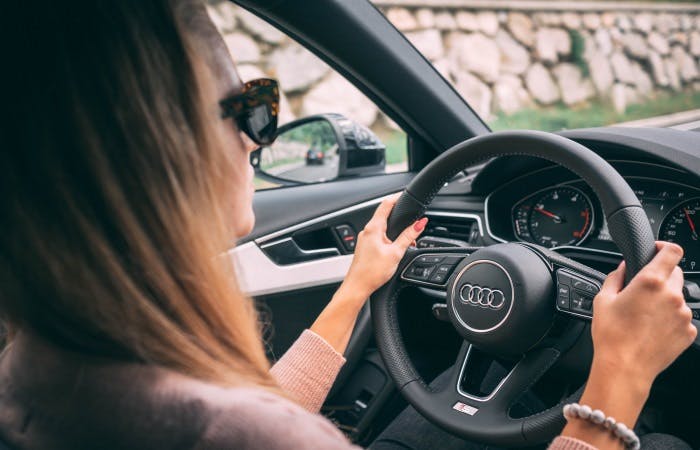
Once you've got your full driving licence in hand, you probably assume that your learning journey is over. However, the reality is that, as a driver, you're never really done with learning. Though your instructor will have taught you plenty, there's still room for improvement going forward. You've still got miles to go before you can completely shake those nerves and truly consider yourself a driving pro. With that in mind, we've compiled a list of tips and tricks for new drivers!
We're going to take you through the ways in which you can continue to sharpen your driving skills and avoid common driving pitfalls. Get the full list below!
Our tips below involve your actual driving experience as a new driver. If you're looking for the more technical steps that you'll need to take, e.g., buying a car and insuring it, you'll want to first read our guide on what to do once you've passed the driving test!
Dig out the P plates

As happy as you might have been to finally get rid of the L plates, it might be beneficial for you to opt for the qualified driver equivalent: P plates. Whilst optional, P plates are something that we feel all new drivers should use. These plates let other drivers know that you've only recently passed the test. Though you might not want to mark yourself as a new driver, it can prove useful. If other drivers see these plates, they're likely to be more patient with you if you show signs of hesitation—as opposed to giving in to a bout of road rage or tailgating you!
We'd recommend leaving the P plates on your car for at least a couple of weeks. This will give you enough time to get used to driving unsupervised. Once you feel comfortable behind the wheel, you can wave goodbye to the plates forever!
Invest in a sat nav
As a new driver, it's unlikely that you have the same photographic memory of the local roads that every experienced driver you know seems to have. If you want to avoid taking too many wrong turns, you might want to think about getting yourself a sat nav. Not only will it help you stay on track, but depending on the model, you could be offered routes that help you bypass heavy traffic in real-time and be warned of any recent road changes or closures.
Not sure where to start? There's certainly plenty of choice nowadays! Fortunately, PassMeFast is on hand to help. Check out our list of best budget sat navs for under £150!
Get used to your car
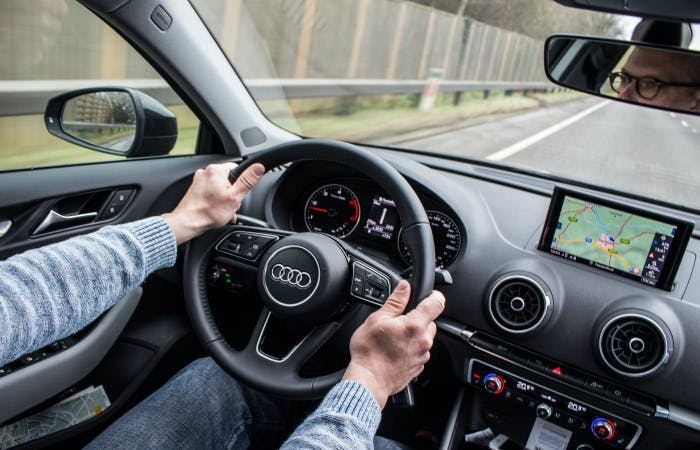
Unless you took driving lessons in your own car, the only experience you'll have behind the wheel is in your instructor's car. This means that when you finally get around to buying your own car, you'll need some time to adjust to driving in an unfamiliar model (unless you buy the same model as your instructor). It's not as simple as getting behind the wheel and rushing off. Different cars will have higher or lower biting points, different gearboxes and even a more varied set of controls. Once you have more experience under your belt with driving different car models, the easier it will be to adjust. For now, however, you'll want to make your way through our guide on how to adjust to driving a new car.
You'll also want to get used to looking after your car. If you're going to be using it on a regular basis, it's important that it's shipshape. You can take care of this by following our top maintenance tips!
Don't get too ambitious
Just as you need to adjust to driving in a new car, you also need to get used to driving unsupervised. So, before you set out on your first road trip, we'd recommend taking things down a notch or two. Though you might feel confident enough to start with, it might be a completely different story once you're actually out and about by yourself—you won't be able to glance to your side and ask for instructions whenever you encounter something unfamiliar.
Start things off by driving around your block. As you progress through quiet, residential roads, you can start to up the ante by heading into your local town or city centre. Once you're comfortable with that, you can move on up to dual carriageways and motorways. By taking things in stages, you can slowly adjust to driving without the safety net of an instructor.
Take more lessons if need be
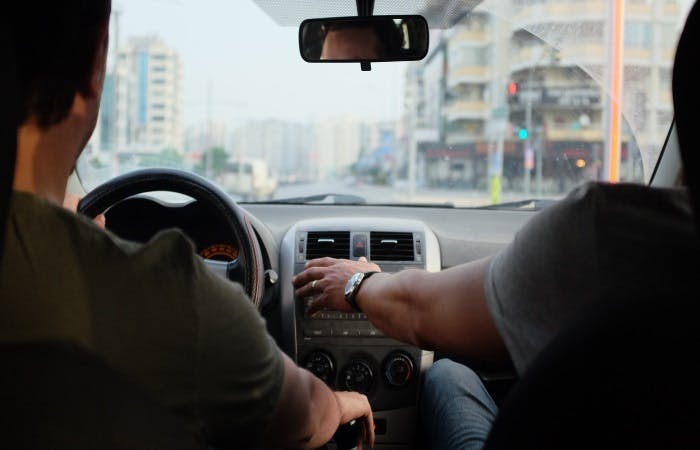
Plenty of new drivers come out of the driving test ready to set out on the motorway within the hour, unsupervised and completely confident in their own abilities. Others, however, still feel slightly shaky. If this is the case for you, then you might want to think about taking more lessons. This doesn't mean you're taking a few steps back in your learning journey, but instead is a good way of tackling your nerves head-on.
You'll find that most driving instructors offer Pass Plus courses, or standard lessons, to new drivers who want to flesh out their driving skills, ease their nerves and boost their confidence. These lessons are also useful for new drivers who find themselves lacking in a certain area. If, for example, you completed your lessons in summer, you'll be inexperienced when it comes to driving in winter. Similarly, if you preferred to take your lessons in the daytime, you might not have driven much at night.
If you don't fancy forking out for more lessons, however, you could always take the car out with one of your family members or friends. As long as you're making an effort to build up your experience and confidence, any practice is good practice.
Keep passengers to a minimum
One of the first things that new drivers want to do is flex their newfound skills in front of friends and family. As tempting as this might be, however, we'd recommend that you give it a miss. Though you might feel comfortable driving with one passenger next to you, courtesy of your driving instructor, it's unlikely that you'll be used to driving with full seats.
It might sound silly, but driving with more than one passenger can really throw off your driving if you're not careful. For starters, it can make it difficult for you to look out of your back window and make your observations. Additionally, the noise levels of multiple passengers can completely distract you from concentrating on the road ahead. So, try out driving with one passenger first. As you gain confidence, you can slowly build up the number.
Avoid further distractions
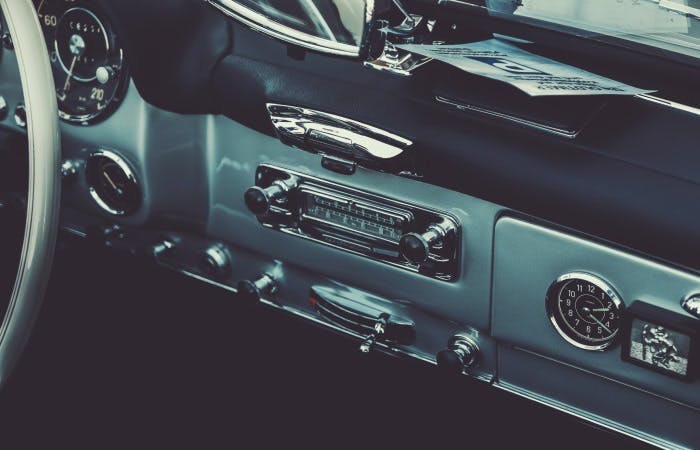
Spent your entire learning journey compiling your favourite driving songs? We'd advise you to press pause at first. Though music can definitely help to make a long journey go faster, it can also be a distraction for new drivers. In addition, it's unlikely that your instructor had the radio on during lessons, so you won't yet be familiar with driving whilst listening to music.
As such, it's a good idea to leave listening to music until you're comfortable with driving unsupervised. Once you're ready, create a playlist. This way, you won't need to reach for the entertainment system mid-drive and break your concentration.
Speaking of distractions, you'll also want to learn to put your phone away while you're in the car. During your lessons, your instructor will have been there to deter you from using your phone while driving. Alone, however, it can be easy to slip into bad habits. So, save yourself from breaking the law by putting it in the glove compartment—or placing it on silent.
Be mindful of how you're driving
Driving can be an expensive affair, even for the most budget-savvy new drivers out there. For starters, you've got to buy the car. Then, you've got to tax it and insure it. If that wasn't enough, you've also got to fork out for refuelling it (something that could occur every few days if you're not careful). However, there are ways that you can save money here.
If you're willing to put in the effort, there are plenty of ways in which you can reduce fuel consumption, from keeping your rev count low to slowing down more gently to changing gears more smoothly. Not only will this save you money on fuel, it can also be beneficial if you've opted for a black box (telematics) insurance policy. You can find more information about this in our top 10 ways to save fuel when driving.
Check the Highway Code
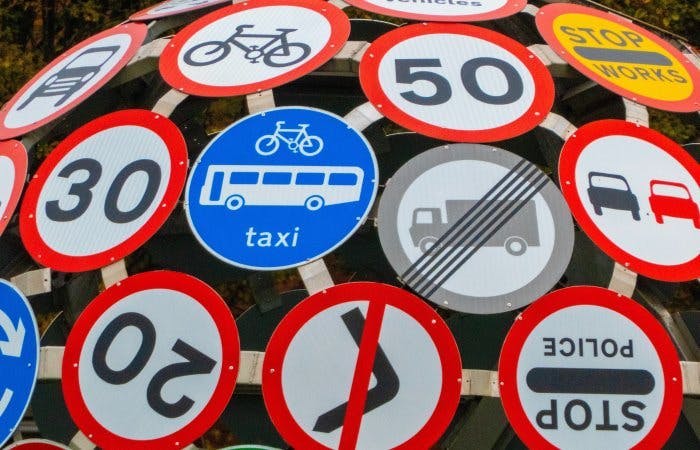
When it comes to learning to drive, there's plenty of information that we end up forgetting about further down the line. Ask any experienced driver to talk to you about specific stopping and braking distances and they'll likely come up short. This is to be expected when it comes to the more niche theory topics. When it comes to the core rules of the road, however, your memorisation skills will need to be on point.
There's a good reason why theory test pass certificates run out after two years, and that's because our theoretical knowledge of the roads is always in need of a refresh. So, take some time to re-read the Highway Code and your theory test revision materials. Not only will this ensure that you're up to date with the latest rules and regulations, it will also help alleviate any nerves you might still have and arm you with the knowledge needed to take to the roads unsupervised.
Be confident!
If you're a full licence holder, you've likely spent at least 40 plus hours in the car with a DVSA-approved instructor. You've also managed to pass the driving test—something that over half of learners fail on the first attempt. Despite all of this, it can still take a while for new drivers to feel like they truly belong on the road. This is especially true when they start to compare their hesitant driving to that of their experienced friends or family.
Instead of letting your nerves get the better of you, you need to think positively. You've come a long way since your first lesson and passing your test is a clear sign that you deserve to be out on the road. If you ever find yourself hesitating or feeling pressured by other drivers in any way, just take a deep breath and remember what you were taught in your lessons. You've got this!
Subscribe for driving advice, offers & more
We'd love to let you know about our courses, news and offers via email. You may unsubscribe at any time.
Star Genie Limited trading as PassMeFast. Company number 10093359
Copyright © 2024 owned by Star Genie Limited
PassMeFast, Blue Tower, MediaCityUK, Salford, M50 2ST
